Society
- Details
- By David Cao
- Hits: 679
Four months ahead of the World Expo, Shanghai has become the second Chinese city to adopt security checks at subway stations, causing mixed reactions from local commuters.
Beginning yesterday, security staff at 31 Shanghai subway stations, with 60 X-ray scanners, began to check passengers to ensure underground traffic safety.
By the end of March, all subway stations in Shanghai will be equipped with X-ray equipment. The number of inspectors will be raised to 6,000 from 2,000, local government officials said.
Police said passengers who refuse to undergo security checks and cause serious consequences could face detention of five to 10 days for disturbing public order, with a fine of up to 500 yuan (73 U.S. dollars).
- Details
- By David Cao
- Hits: 633
The bustling construction site where China's fourth-largest air hub will emerge came to a sudden standstill Monday, when the local government ordered all work to be suspended after Sunday's bridge collapse that killed seven workers.
The accident also left 34 injured, including eight seriously. On Sunday, a section of the overpass plunged roughly 7.5 meters to the ground near Kunming, capital of Southwest China's Yunnan province.
The hub is supposed to be finished by 2012. The crashed section was 38 meters long and 13 meters wide.
The cause of the collapse is under investigation, said Wang Jinsheng, spokesman for the new airport's construction headquarters.
Read more: Building of airport suspended after bridge collapse in SW China
- Details
- By David Cao
- Hits: 718
Chinese central authorities have stressed the promotion of honesty and uprightness among the public, especially government officials, in enhancing clean governance and anti-corruption drive.
It is imperative to foster and carry forward the merit of honesty and uprightness, and officials should have the awareness of using power justly and pursue clean-fingered work style, according to suggestions on clean governance put forward by six central government departments.
The six departments also urged to strengthen education on the public about the value of honesty and cleanness combining social morality, professional ethics, family virtues and personal moral character.
- Details
- By David Cao
- Hits: 1051
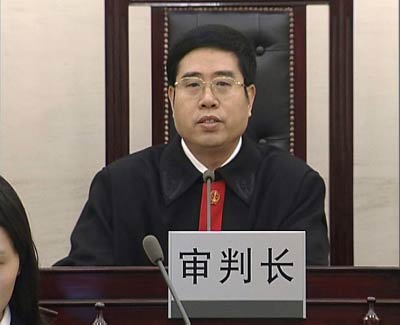
Huang Songyou, former vice president of China's Supreme People's Court (SPC), will stand trial in the near future on charges of accepting an approximate 4-million-yuan ($586,000) bribe, the newspaper China Business reports.
Huang will be the highest-ranking judicial official to be tried for graft since 1949 when the country was founded. Procurators have accused Huang of abusing his power to seek profit for concerned people for a "huge amount" of bribes in return and leading a "corrupt and lavish" life.
Read more: China top judge charged with taking 4-million-yuan bribe
- Details
- By David Cao
- Hits: 922
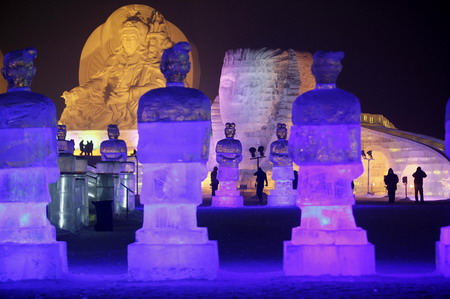
People visit an ice sculpture for the upcoming 26th Harbin International Ice and Snow Festival at a park in Harbin, Heilongjiang province, January 3, 2010. The festival will kick off on January 5, 2010, local media reported.
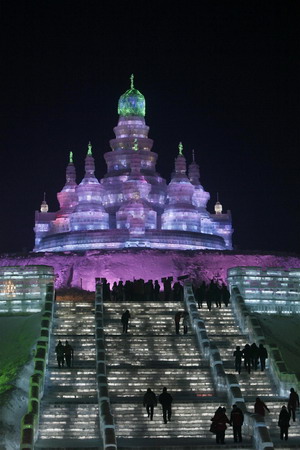
Tourists walk on icy stairs at an ice sculpture for the upcoming 26th Harbin International Ice and Snow Festival at a park in Harbin, Heilongjiang province, January 3, 2010.
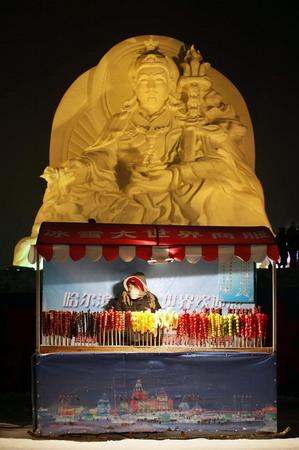
A vendor selling tanghulu, a type of candied fruit, waits for customers in his stall in front of a snow sculpture for the upcoming 26th Harbin International Ice and Snow Festival at a park in Harbin, Heilongjiang province, January 3, 2010.
Updated on 2010.01.06
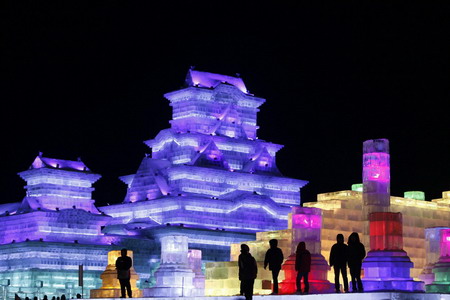
Visitors look at ice sculptures during the 26th Harbin International Ice and Snow Festival at a park in Harbin, Heilongjiang province, January 5, 2010.
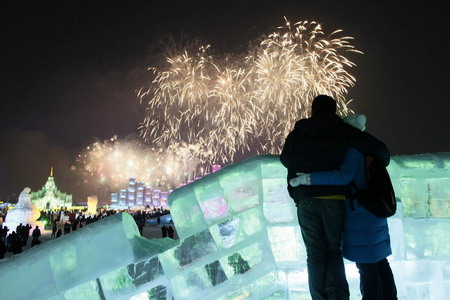
A couple embraces in front of an ice sculpture as fireworks light up the sky during the 26th Harbin International Ice and Snow Festival at a park in Harbin, Heilongjiang province, January 5, 2010.
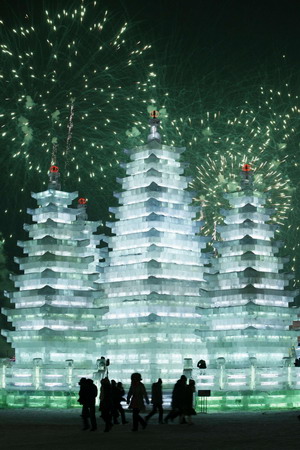
Visitors look at an ice sculpture, as fireworks are lit in the background, during the 26th Harbin International Ice and Snow Festival at a park in Harbin, Heilongjiang province, January 5, 2010.
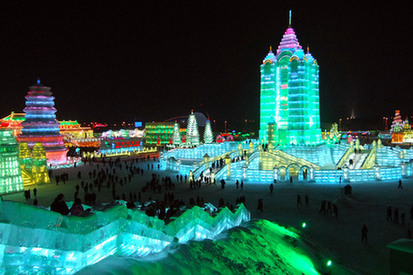
Visitors look at ice sculptures during the 26th Harbin International Ice and Snow Festival at a park in Harbin, Heilongjiang province, January 5, 2010.
More Articles …
Page 179 of 255